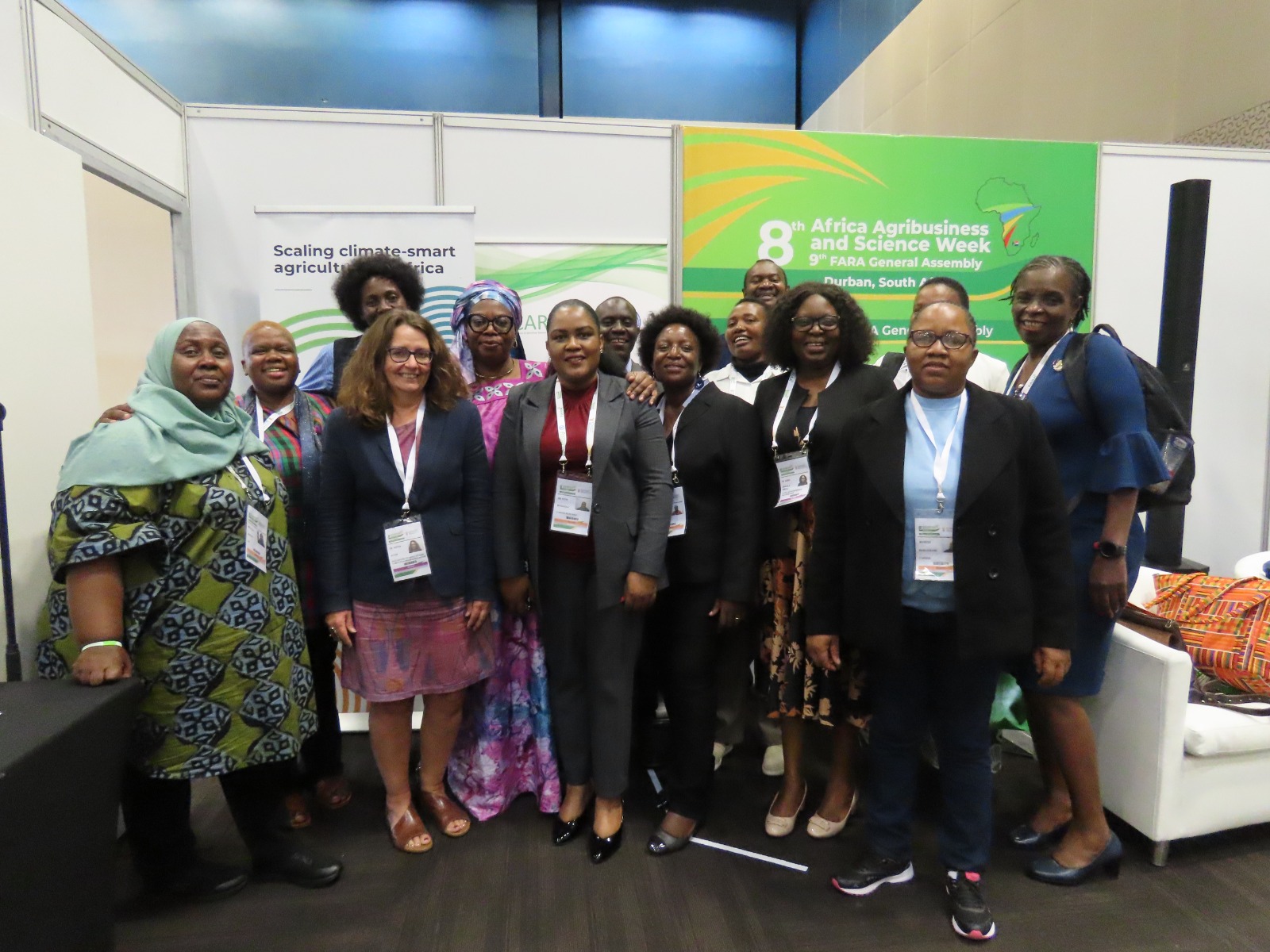CCARDESA & AICCRA Puts Spotlight on Gender-Responsive Agricultural Policies

During the 8th Africa Agriculture Science Week, a Gender Side Event emphasized the need for agricultural research organizations to be gender-responsive and confront the social and cultural norms perpetuating gender disparities. The event, held on 6th June 2023, was hosted by the Centre for Coordination of Agricultural Research and Development for Southern Africa (CCARDESA) in partnership with the Accelerating Impacts of CGIAR Climate Research for Africa (AICCRA). The event under the theme Fostering Agribusiness and Gender/Youth Responsive Food Systems was held in Durban, South Africa. It was implemented under the umbrella of the CAADP-XP4 program, a consortium of AFAAS, ASARECA, CCARDESA, CORAF, and FARA.
The event celebrated the successes of women and youth in agribusiness, particularly those employing climate-smart initiatives and technologies for empowerment. Furthermore, it explored potential partnerships for enhancing women and youth participation in establishing sustainable and inclusive food systems across Africa.
Dr. Baitsi Podisi, CAADP-XP4 Coordinator, opened the event and emphasized CCARDESA’s commitment to gender inclusiveness, supporting not only women but also marginalized men, people with disabilities, and rural, impoverished communities.
However, the keynote address by Dr. Susan Kaaria, the (African Women in Agricultural Research and Development) AWARD Executive Director, underscored that agricultural policies addressing gender equality and women’s empowerment remain woefully insufficient. She presented alarming statistics, revealing that although over 75% of agricultural policies acknowledge women's roles and challenges in agriculture, only 19% have explicit objectives for gender equality or women's rights, and a mere 13% encourage rural women's participation in policy-making. Dr. Kaaria highlighted the necessity of ensuring more women have access to resources and opportunities for leadership.
Dr. Nawa Shalala-Mwale, a Gender Expert, also presented an overview of gender in the SADC region, emphasizing that gender equality doesn't disadvantage men but instead seeks to close the opportunity gap between men and women, which has traditionally seen women lagging.
Dr. Sophia Huyer, the AICCRA Gender & Social Inclusion leader, elucidated the core principles that her organization implements to guarantee gender mainstreaming. These fundamental principles encompass various areas: firstly, they ensure climate resilience in agriculture, which implies adapting farming practices and bolstering productivity. Climate information is specifically tailored to address women's priorities and concerns. Secondly, the principles advocate for community-level decision-making and leadership, emphasizing the importance of inclusive, local governance. Lastly, these principles seek to alleviate increased workloads, a phenomenon exacerbated by the harsh impacts of climate change and the resulting displacement of family members.
Participants were introduced to the FARA gender mainstreaming action plan, slated for validation, during a forthcoming virtual meeting. The method includes promoting gender-smart agriculture, developing women-youth training programs on fertilizer application and pesticides, promoting research and gender mobilization, and addressing gender imbalance at the community level.
Moreover, participants from selected SADC member states, including Botswana, Tanzania, Namibia, Malawi, Eswatini, and Zambia, shared their experiences in agriculture, detailing their successes and challenges. These real-world stories brought a human element to the statistics and strategies presented, providing a testament to the resilience and innovation of women and youth in the agriculture sector.
The event concluded with a call to action for all stakeholders to critically review and strengthen monitoring and evaluation of the impact of gender roles in agriculture and to take proactive steps toward fostering an environment of gender equality in the field. It's a long journey ahead, but with collaborative efforts, establishing gender-responsive agricultural policies across Africa seems within reach. CAADP-XP4 Programme is funded by the European Union and administered by the International Fund for Agricultural Development (IFAD), while the World Bank funds AICCRA.

























































